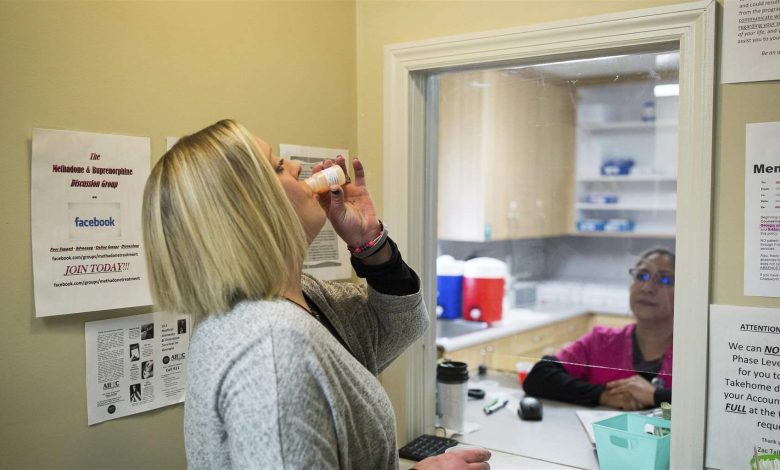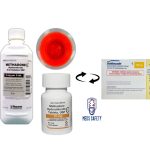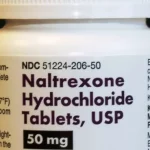How To Find Methadone Clinic Locations Near Me

A methadone clinic is a healthcare facility that provides treatment for individuals who are addicted to opioids, particularly heroin or prescription pain medications. Methadone is a medication used in medication-assisted treatment (MAT) to help reduce withdrawal symptoms and cravings associated with opioid addiction.
At a methadone clinic, individuals receive a daily dose of methadone, typically administered orally. The dosage is carefully monitored and adjusted based on the patient’s needs. The goal of methadone treatment is to stabilize the individual, reduce opioid cravings, and minimize withdrawal symptoms, allowing them to function normally and engage in other aspects of their life, such as work, family, and social activities.
Methadone clinics also provide comprehensive support services, including counseling, education, and referrals to other resources, to help individuals address the underlying causes of their addiction and develop coping strategies for long-term recovery.
The use of methadone for the treatment of opioid addiction dates back to the 1960s. It was developed as a synthetic opioid to address the growing heroin epidemic. Methadone was found to be effective in reducing withdrawal symptoms and suppressing cravings, making it an essential component of medication-assisted treatment (MAT).
The first methadone clinics were established in the United States in the early 1970s as part of a government effort to address the opioid crisis. These clinics provided a structured approach to delivering methadone treatment, ensuring that patients received the medication under medical supervision and also received counseling and support services.
Over the years, the use of methadone clinics has expanded globally as the understanding of opioid addiction and its treatment has evolved. Methadone has been recognized as a crucial tool in harm reduction strategies, helping individuals with opioid addiction to stabilize their lives and reduce the risks associated with drug use. In addition to methadone, other medications such as buprenorphine and naltrexone have also been approved for the treatment of opioid addiction, providing alternative options for medication-assisted treatment.
Methadone clinics have played a significant role in addressing the opioid crisis and improving outcomes for individuals struggling with addiction. They continue to be an essential part of the healthcare system, providing comprehensive care and support to those seeking recovery from opioid addiction.
How does a Methadone program work?
A methadone program, also known as a methadone maintenance treatment (MMT) program, typically follows a structured process to provide effective care for individuals with opioid addiction. Here’s how a typical methadone program works:
1. Assessment and Intake: The first step involves an initial assessment to determine the individual’s eligibility for methadone treatment. This assessment usually includes a comprehensive medical evaluation, including a review of the person’s opioid use history, physical health, and mental health status.
2. Induction Phase: Once the individual is deemed eligible, they enter the induction phase. During this phase, the person starts receiving methadone under medical supervision. The initial dose is typically lower and gradually increased over time to find the appropriate dosage that effectively manages withdrawal symptoms and cravings.
3. Stabilization Phase: In this phase, the methadone dosage is adjusted to achieve a stable state, where the person experiences reduced cravings, and minimal withdrawal symptoms, and is able to function normally in their daily life. The dosage is regularly monitored and modified as needed based on the individual’s response and progress.
4. Ongoing Maintenance: Once the individual reaches a stable state, they enter the maintenance phase. In this phase, they continue to receive their daily methadone dose, typically administered orally in a controlled setting, such as a clinic. Regular follow-up appointments are scheduled to monitor progress, address any concerns, and provide support.
5. Support Services: Alongside medication, methadone programs offer comprehensive support services to address the psychological, social, and behavioral aspects of addiction. This often includes individual and group counseling, therapy, education about addiction and relapse prevention, and assistance with employment, housing, and other social needs.
6. Gradual Tapering: For some individuals, the goal of the methadone program is to eventually discontinue methadone treatment altogether. This is achieved through a gradual tapering process, where the dosage is gradually reduced over time under medical supervision. The pace of tapering is personalized, taking into account the individual’s progress, stability, and readiness for withdrawal.
It’s important to note that the specific details and protocols may vary from one methadone program to another, as different clinics or healthcare providers may have slightly different approaches. However, the overall goal of a methadone program is to help individuals stabilize their lives, reduce opioid use, and support long-term recovery.
How long should you stay on Methadone?
The duration of methadone treatment varies from individual to individual and depends on various factors, including the severity of opioid addiction, treatment goals, and individual progress. Methadone maintenance treatment (MMT) can be long-term, and the length of time a person stays on methadone is determined on a case-by-case basis.
Some individuals may remain on methadone for an extended period, even years, as part of their ongoing recovery and relapse prevention strategy. This is especially true for individuals who have experienced multiple relapses or have a long history of opioid addiction. Methadone treatment can provide stability and support for those individuals, reducing the risk of relapse and allowing them to rebuild their lives.
However, it’s important to note that the ultimate goal of methadone treatment for many individuals is to achieve a sustained period of stability and recovery, free from opioid use and the need for methadone. In such cases, a gradual tapering process may be initiated under medical supervision, where the methadone dosage is gradually reduced over time. The pace of tapering is individualized and depends on factors such as the person’s progress, readiness for withdrawal, and ability to cope with any potential withdrawal symptoms.
The decision of how long to stay on methadone should be made in consultation with healthcare professionals who specialize in addiction medicine. They can assess the individual’s unique circumstances, monitor their progress, and provide guidance on the appropriate duration of treatment. It’s important to consider factors such as the individual’s stability, ability to manage cravings and withdrawal symptoms, and their overall readiness to transition to a drug-free state.
Remember, methadone treatment is not a one-size-fits-all approach, and the duration of treatment should be tailored to meet the specific needs and goals of each individual.
How to Find Methadone Clinic Locations
The availability and locations of methadone clinics can vary depending on the country, region, and even the city you are in.
To find methadone clinics in a specific location, we recommend using online resources such as:
1. SAMHSA Treatment Locator: The Substance Abuse and Mental Health Services Administration (SAMHSA) has a treatment locator tool on its website that can help you find substance abuse treatment facilities, including methadone clinics, in the United States. You can access it at: https://findtreatment.samhsa.gov/
2. Local Health Department or Substance Abuse Agencies: Local health departments or government agencies dedicated to substance abuse treatment and prevention may have information about methadone clinics in your area. They may have online directories or helplines you can contact for assistance.
3. Online Directories and Helplines: There are various online directories and helplines specific to substance abuse treatment that can provide information on methadone clinics in your location. These resources can be found through internet searches or by contacting helplines specializing in addiction treatment.
These directories can provide accurate and current information on the addresses and contact details of methadone clinics near you. It’s important to note that contacting healthcare professionals or organizations specializing in addiction treatment can provide you with the most accurate and up-to-date information regarding methadone clinics in your area.





